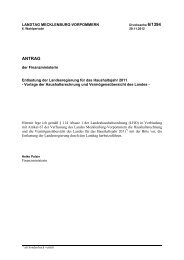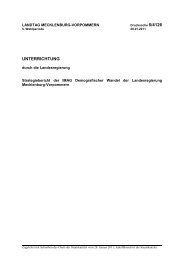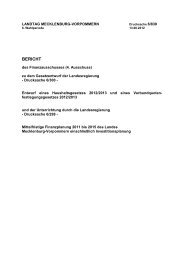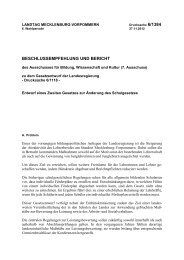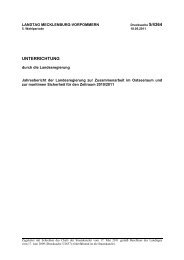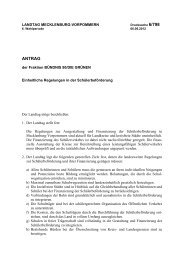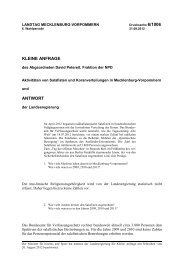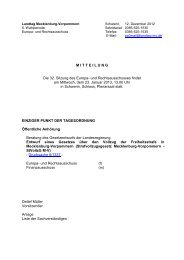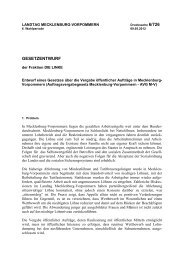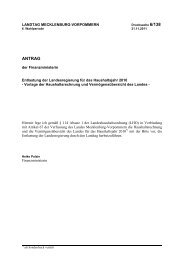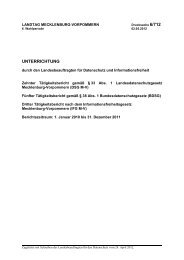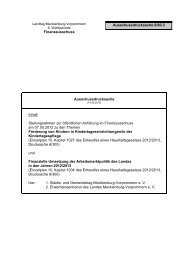Baltic Rim Economies - Baltic Port List
Baltic Rim Economies - Baltic Port List
Baltic Rim Economies - Baltic Port List
Create successful ePaper yourself
Turn your PDF publications into a flip-book with our unique Google optimized e-Paper software.
Expert article 906 <strong>Baltic</strong> <strong>Rim</strong> <strong>Economies</strong>, 21.12.2011 Quarterly Review 5�2011<br />
The outline of political reforms in future Russia<br />
By Kirill Rodionov<br />
In September Vladimir Putin and Dmitry Medvedev declared a new<br />
configuration of the executive authority for the nearest 6 years.<br />
The reshuffle within the tandem became yet another act in the<br />
process of the power vertical strengthening, which started after<br />
Boris Eltsin had quitted as the President of the country. Political<br />
analysts are calculating how old the Nation Leader will be in 2024<br />
and they draw parallels with the period of Brezhnev's stagnation. Is<br />
everything that fatal? Can one expect any changes?<br />
In Russia the periods of political «warming up» and «cooling<br />
down» are synchronized with the periods of strengthening and<br />
weakening in the West. For example, the transition from NEP to<br />
the policy of collectivization, accelerated industrialization and mass<br />
terror occurred at the same time with the beginning of the Great<br />
Depression. Fast postwar recovery of Europe, consolidation of the<br />
Western countries under the authority of USA were the important<br />
factors of the situation, when by 1953 most of the Soviet elite had<br />
realized the necessity of reforms. The transition from Khruschiov-<br />
Kosygin's reformations to the conservation of the USSR political<br />
system coincided in time with the Student Revolutions of 1968 and<br />
the following crisis of 1970s in the West (stagflation and energy<br />
crises of 1973 and 1979).<br />
The world situation underwent a sweeping change in the 80s -<br />
«neoliberal revolution» of Reagan and Thatcher, democratic<br />
transformation of the South European countries, and the beginning<br />
of the market reforms in China also brought the politics in the<br />
USSR to the understanding that some reforms were necessary.<br />
Under the conditions of slump in oil prices in the middle of the 80s,<br />
acceleration of the European integration, a dynamic economic<br />
growth in the developed countries and reinforcement of the USA<br />
international influence Russia had to make radical reorganization<br />
of its socio-political and economic systems. But at the turn of the<br />
millennium the global situation changed once again – the crash of<br />
NASDAQ high-tech market in 2000, recession in the USA in 2001,<br />
the terrorist attack in 2001, difficulties of the USA in Iraq and<br />
Afghanistan, the failure of the referendum for ratification of the EU<br />
Constitution in 2004, the beginning of the mortgage crisis in the<br />
USA in 2007, and the financial turmoil of 2008-2009 indicate<br />
weakening of the Western countries in the first decade of the 21st<br />
century. Meanwhile in Russia certain authoritarian tendencies<br />
have started to gain momentum – the central TV channels<br />
takeover by the Kremlin, the raise of cutoff point for the political<br />
parties to pass to the State Duma, and the cancellation of<br />
gubernatorial elections.<br />
The world economic crisis, which has started in 2008, is of a<br />
systemic character. Like the crises of the 30s and 70s, this crisis<br />
will be over only after a fundamental transformation of the world<br />
economy, including the formation of a new model for economic<br />
regulation, global economic cooperation and international currency<br />
relations. As the Great Depression and stagflation crisis<br />
experience shows, the development and implementation period for<br />
the new institutions and economic development mechanisms<br />
which is characterized by instability of the world economy usually<br />
lasts about 10 years. That's why it may be assumed that the world<br />
economy will return to the stable growth in the 2020s. Apparently,<br />
Russia will have to go through a radical reorganization at that very<br />
period, so as to adapt to the changes occurring at the global stage.<br />
What will be the nature of the country’s future transformation?<br />
After 1991 Russia made an attempt of triple transition – from the<br />
Empire to the nation, from the plan to the market and from<br />
totalitarianism to democracy. It was only the transition from the<br />
Soviet planned economy to the market economy that turned out to<br />
be relatively successful. Without doubt, there are many problems<br />
in Russian economy today: strong budget dependence on oil and<br />
gas revenues, bloating government sector, low efficiency of the<br />
regulating institutions. However these problems are related to the<br />
overcoming Soviet heritage only to some degree - most of the oil<br />
net supplying countries face similar challenges. The problems of<br />
building a functioning democracy and creating a political nation<br />
turned out to be more difficult. The reformers of the future<br />
generations will have to solve these problems.<br />
67<br />
Political Reform<br />
The configuration of the branches of government will be the most<br />
important aspect of the future political reform. The actual<br />
unaccountability of the Government to the Parliament was one of<br />
the main weaknesses of the Constitution of 1993. During the last<br />
fifteen years the bodies of legislative power have had practically no<br />
influence on the ministerial formation. In addition, the Lower House<br />
of the Russian Parliament didn't bear any political liability for the<br />
realization consequences of its decisions, and that made a<br />
negative impact on the lawmaking. The imbalance in the powers of<br />
the legislative and executive branches of government blocked the<br />
democratic process in 1990s and stimulated the strengthening of<br />
the authoritative tendencies in later years. In order to make the<br />
Government accountable to the Parliament it is necessary to link<br />
the ministerial formation procedure to the results of the Parliament<br />
elections.<br />
Creation of the National State<br />
Throughout the greater part of its history Russia hasn't been a<br />
national state, but a territorially integrated empire. Russia's<br />
existence as the mother country which united its conquered<br />
colonies justified the need for strong authoritative power which<br />
controlled separatism of the outskirts. After 1991 the empire has<br />
partially reproduced itself - the modern Russia includes regions<br />
which do not belong to it in the historical and cultural context, such<br />
as the North Caucasus. As in the Russian Empire and the Soviet<br />
Union the integration of regions in post-Soviet Russia is ensured<br />
by the vertical power and suppression of any spontaneous national<br />
movements. Personalistic regimes are formed in the national<br />
republics, which form the background for future separation from<br />
Russia. In the future Russia must be reconsidered as the National<br />
Russian State.<br />
The formation of the National State must be accompanied by<br />
the entrance into the supranational communities of the Western<br />
world. Today there are no real preconditions for deep integration of<br />
Russia with the Western world. But China can play an important<br />
role in the future. This country is becoming the main competitor of<br />
the USA at the global level. As after the Second World War the<br />
Soviet menace was the reason for including Germany into the<br />
geopolitical space of the West, so modern China can be the key<br />
factor in the rapprochement between Russia and the developed<br />
countries.<br />
Kirill Rodionov<br />
Research Associate<br />
Gaidar Institute for Economic Policy<br />
Russia<br />
� Pan-European Institute � To receive a free copy please register at www.tse.fi/pei �



